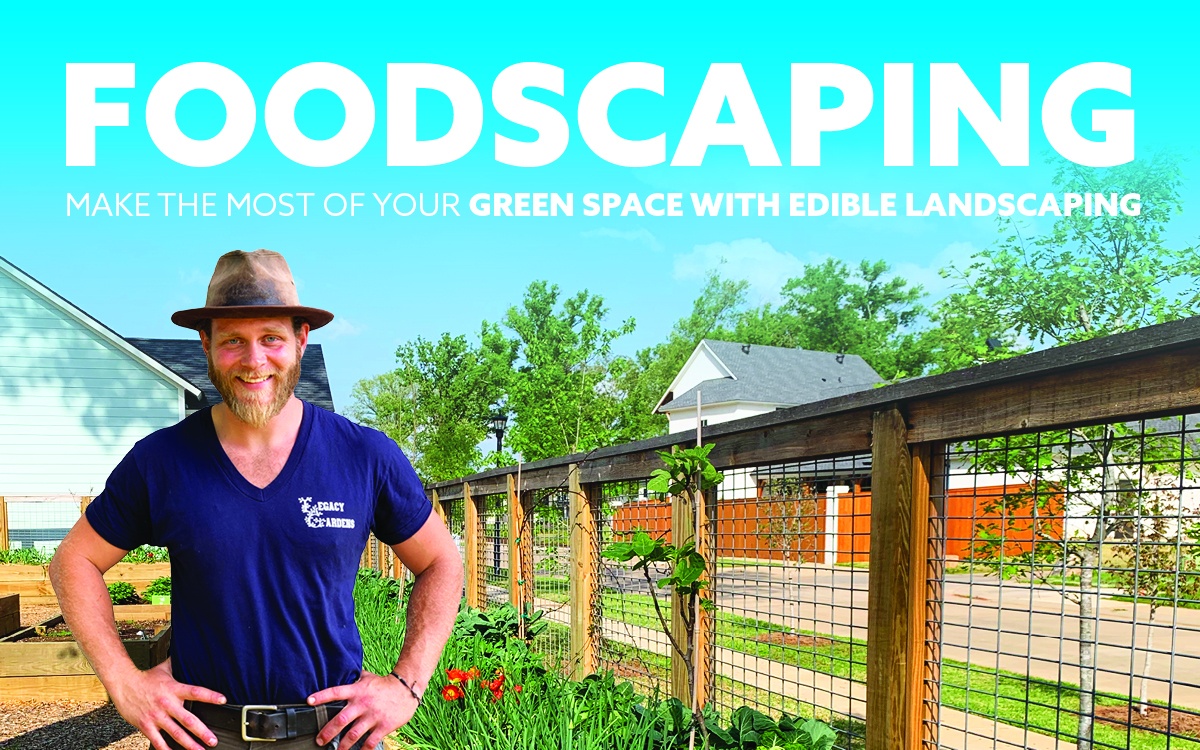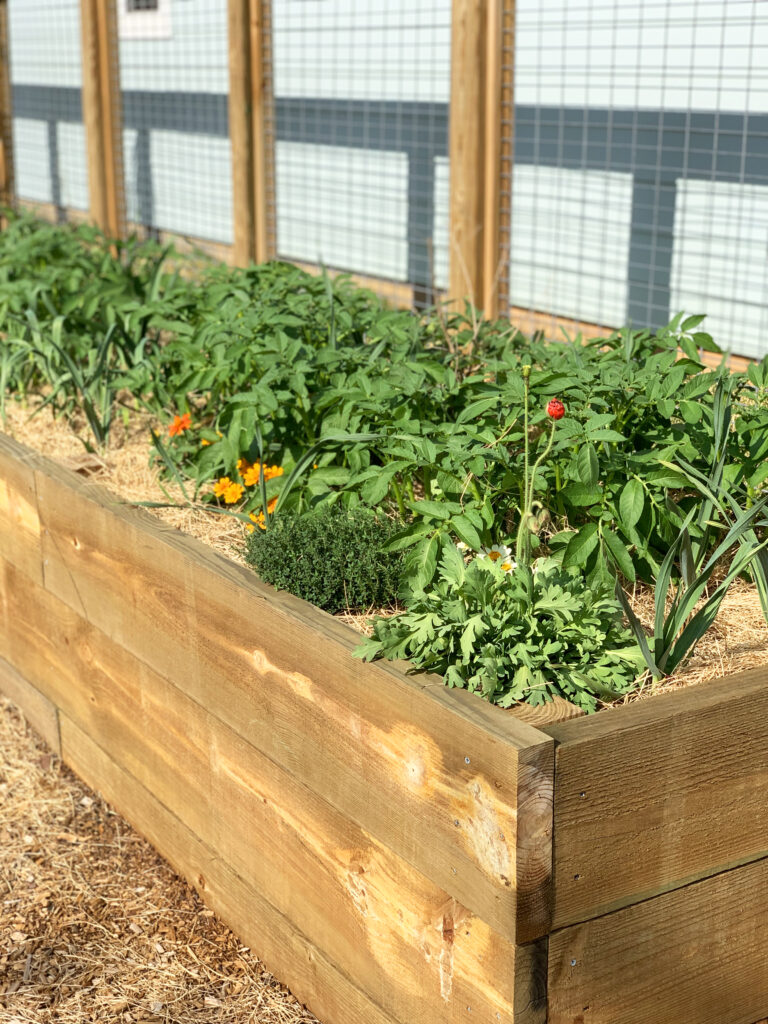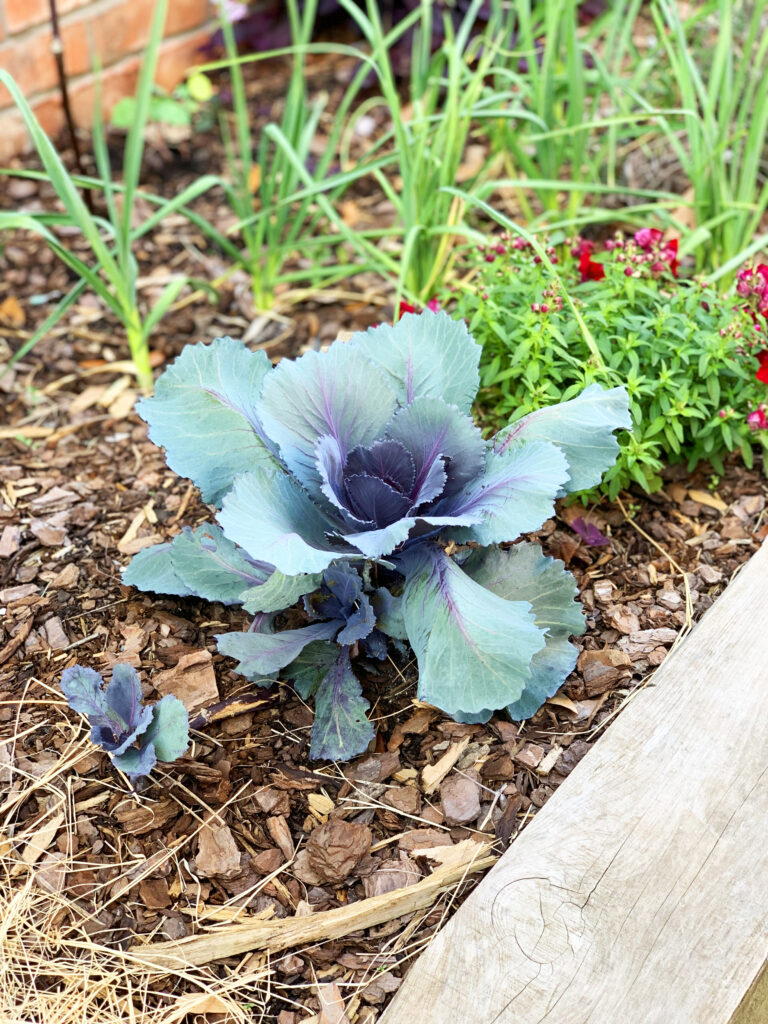Foodscaping: Make The Most of Your Green Space with Edible Landscaping

By Lee Merrill
ith food costs rising and supply waning, we find ourselves in uncertain times. Anthony Hoff, owner of Legacy Gardens, is helping people make the most of their green space and take their food security into their own hands with edible landscaping and companion planting. The Covid crisis reminded Hoff of how much he loves being outside working with the soil and living things. When the pandemic struck, Hoff was living in Los Angeles on a small homestead and suddenly found himself unemployed. Tending to his trees and plants kept him busy, fed, and sane. On his personal property, he harvested more than 2,000 pounds of pomegranates. He collaborated with like-minded friends to make the best use of untended city land using the Three Sisters Method, which is a companion planting method featuring corn, beans, and squash.
Soon, his hobby became his lifestyle, and within the last year, it has become a thriving business. With a small crew of family and friends, Hoff is helping a few small farmers establish organic vegetable and herb gardens, orchards, and pasture-raised livestock systems as well as serving residential and commercial clients. He chose the name Legacy Gardens as he pondered what he could leave behind. “A big part of gardening is you may plant the tree that you never enjoy the shade of, or you never get to eat the fruit off of, but you’re leaving that legacy behind for someone else.”
Thinking back on the Covid time, Hoff said, “I saw a lot of people’s mindset and intention with Covid had shifted back toward tradition. I think empty shelves and a little bit of a food crisis was to blame there. For the first time in a long time, our country was thinking about where our food came from and certainly had more people thinking about personal health and wellness.”
Hoff says everyone has the room to plant something. He challenges us to start small and plant something we will actually eat. He recommends starting with potted plants or four-by-eight raised beds. Get seeds or young plants from a local nursery, where you are more likely to find experts on the local climate and optimal planting times. Hoff’s special joy is opening people’s eyes to the appeal of edible landscaping. “If you’re going to plant things in your space, why not use some of the space to plant things you can eat? Many edible plants and fruit-bearing trees are not only good for food but beautiful to the eye.”
Companion planting is also a passion for Hoff. He recently installed blueberry shrubs along a client’s fence and interspersed them with oak-leaf hydrangeas, both lovers of acidic soil. The hydrangeas produce gorgeous white flowers that attract pollinators for the blueberry plants. They keep their foliage all year long, so the fence area will stay beautiful even after the blueberry plants stop producing. He also included creeping juniper that will add to the acidity of the soil as it loses its foliage.
Hoff sang the praises of the LSU Ag Center, which he says is an underutilized free resource. They offer free downloadable planting guides that take a lot of the guesswork out of gardening.
If you want to work with Anthony Hoff and his Legacy Landscaping team, give him a call at 318.230.4487 or email him at legacygardener@protonmail.com to set up a free consultation.



